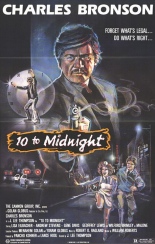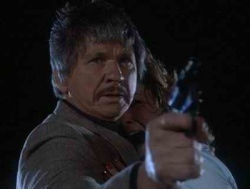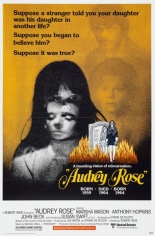
 Lil’ Audrey Rose, age 5, is killed within the first minute of the film that bears her name, burning to death with her mother in their overturned car, following a head-on collision on the highway. Several years later, a man in a novelty beard (Anthony Hopkins, The Silence of the Lambs) is seen stalking the Templeton family all over New York City, from Central Park to their 11-year-old daughter’s private school.
Lil’ Audrey Rose, age 5, is killed within the first minute of the film that bears her name, burning to death with her mother in their overturned car, following a head-on collision on the highway. Several years later, a man in a novelty beard (Anthony Hopkins, The Silence of the Lambs) is seen stalking the Templeton family all over New York City, from Central Park to their 11-year-old daughter’s private school.
What links the two events? As Elliot Hoover (Hopkins) tells Mr. and Mrs. Templeton (Rollerball‘s John Beck and Heartbreak Ridge‘s Marsha Mason) after persuading them to meet him, he firmly believes that the soul of his dead daughter, Audrey, resides in the body of their very much alive one, Ivy (Susan Swift, Halloween: The Curse of Michael Myers, in a great child-actor performance). Naturally, the parents think he’s nucking futs, but you know, come to think of it, Ivy has been experiencing some violent nightmares. Soon, she’s throwing herself all over their West 67th apartment like she’s going for the gold at a gymnastics tourney, all while supposedly asleep.
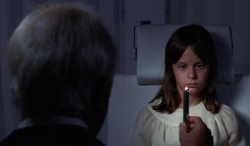 Judging from his work helming 1963’s The Haunting and, to a lesser degree, 1949’s Curse of the Cat People, director Robert Wise once knew what worked in horror — especially that which is suggested rather than seen — but exhibits that skill only in Audrey‘s first half. Before taking a huge shift in story direction, Wise achieves a creepy uneasiness that will remind viewers of The Exorcist‘s early scenes, as an apple-cheeked only child not suffering from a lack of parental love and attention suddenly becomes inexplicably abnormal.
Judging from his work helming 1963’s The Haunting and, to a lesser degree, 1949’s Curse of the Cat People, director Robert Wise once knew what worked in horror — especially that which is suggested rather than seen — but exhibits that skill only in Audrey‘s first half. Before taking a huge shift in story direction, Wise achieves a creepy uneasiness that will remind viewers of The Exorcist‘s early scenes, as an apple-cheeked only child not suffering from a lack of parental love and attention suddenly becomes inexplicably abnormal.
What kills the momentum? Hoover tries to convince the Templetons to allow him access to Ivy, in order to free Audrey’s soul that cries out for help. This leads to the film becoming a courtroom drama, like Kramer vs. Kramer for the pro-reincarnation community. Stock footage of funeral practices in India is about the least of the back half’s problems when one considers a lengthy hypnosis session and an ending so terrible, it’s insulting. Letting Frank De Felitta (The Entity) adapt his own novel was perhaps not so Wise, Bob. —Rod Lott

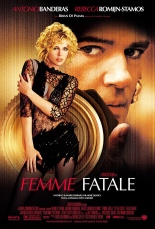
 Long derided for ripping off Alfred Hitchcock, Brian De Palma instead entered the new millennium with an erotic thriller that looks like he’s ripping off Brian De Palma ripping off Alfred Hitchcock. I generally love the guy, but
Long derided for ripping off Alfred Hitchcock, Brian De Palma instead entered the new millennium with an erotic thriller that looks like he’s ripping off Brian De Palma ripping off Alfred Hitchcock. I generally love the guy, but 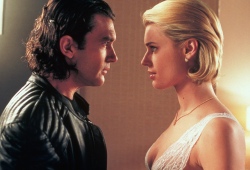

 In the 1980s, we as a nation did some crazy things. We grooved to Toto. We bought “Baby on Board” signs. And we allowed the phrase “a Topps Chewing Gum Production” to appear on theater screens. I blame all the cocaine.
In the 1980s, we as a nation did some crazy things. We grooved to Toto. We bought “Baby on Board” signs. And we allowed the phrase “a Topps Chewing Gum Production” to appear on theater screens. I blame all the cocaine. 

